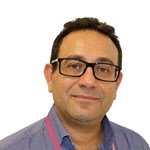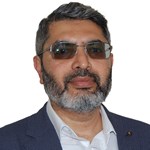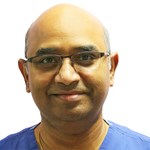Contact us to book your consultation
It's easy to find out more about treatment or book a consultation by giving us a call or completing our enquiry form.

Consultant General and Emergency Surgeon
Mr Abdul Aal's specialties include gallbladder removal, hernia surgery, advanced upper and gastrointestinal procedures.
Language(s): English, Arabic
Location(s): Kent

Consultant General and Colorectal Surgeon
Mr Adamek's clinical interests include a range of investigative and surgical procedures for colorectal and general surgery.
Language(s): English, Italian, Russian, Polish
Location(s): Kent

Consultant General and Colorectal Surgeon
Mr Akhtar's specialities include hernia repair, colonoscopy, polypectomy and anal fistula surgery.
Language(s): English, Punjabi, Hindi, Urdu
Location(s): Kent

Consultant General and Colorectal Surgeon
Mr Hamade's specialties include colorectal surgery, laparoscopic surgery and general surgery.
Language(s): English, French, Arabic
Location(s): Kent

Consultant Surgeon
Mr Hamouda's specialties include gallstone disease, gallbladder removal and hernia repair.
Language(s): English, Arabic
Location(s): Kent

Consultant General Surgeon
Mr Hasan's specialties include advanced laparoscopic surgery, thyroid surgery and hepatobiliary surgery procedures.
Language(s): English
Location(s): Kent

Consultant General, Laparoscopic and Colorectal Surgeon
Mr Mangam works in laparoscopic colorectal surgery and coloproctology including bowel cancer, haemorrhoids, fissures, fistula and inflammatory bowel disease.
Language(s): English, Hindi, Urdu
Location(s): Kent

Consultant Surgeon
Mr Okaro's specialties include general surgery and upper GI surgery.
Language(s): English
Location(s): Kent
It's easy to find out more about treatment or book a consultation by giving us a call or completing our enquiry form.